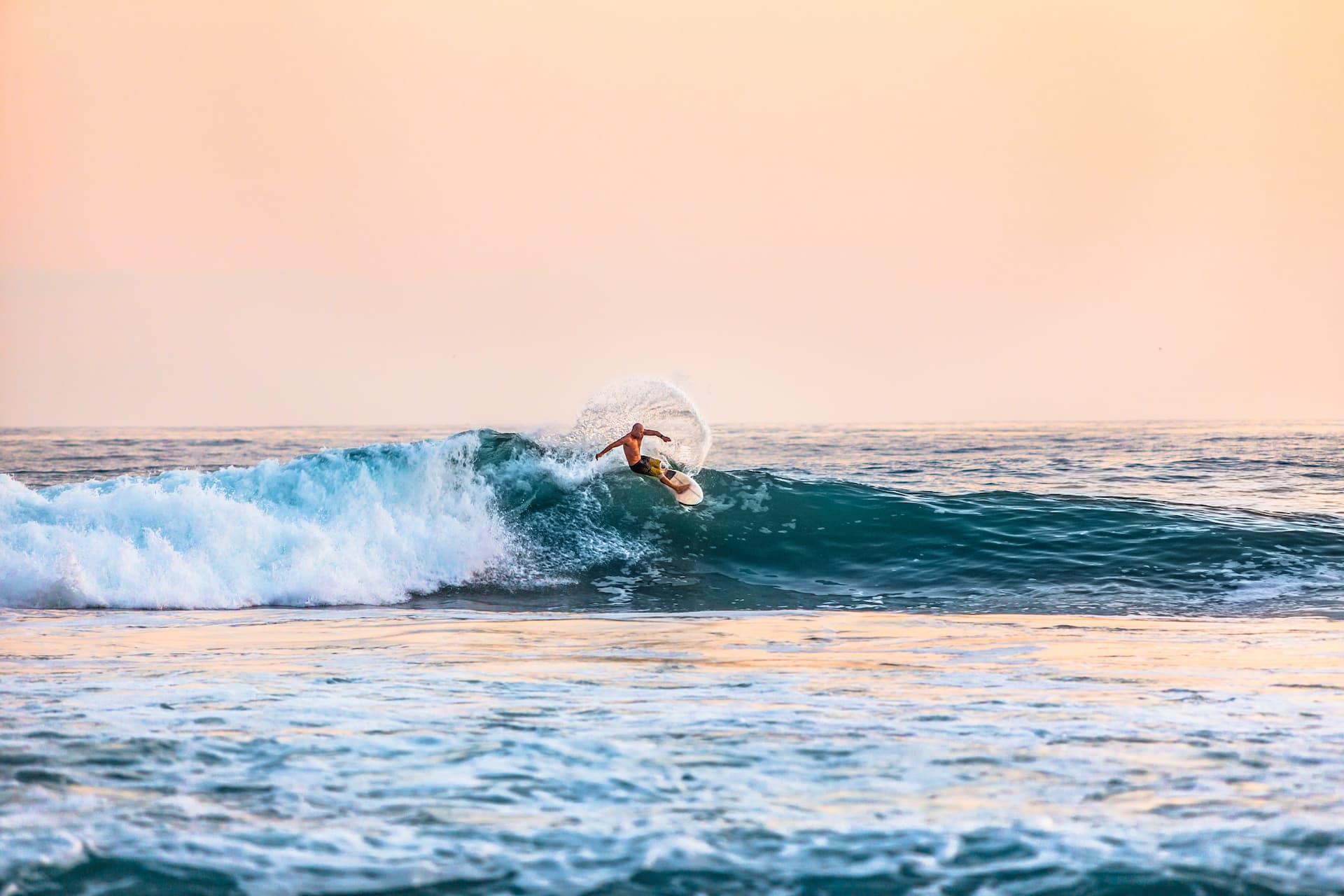How many lessons does it take to learn to surf?
Are surfers happy?
Hey there! Surfing is one of the most exhilarating and challenging sports out there. The feeling of catching a wave and riding it all the way to shore is truly unmatched. But, the question is, are surfers happy? I would say that, for the most part, surfers are some of the happiest people you will ever meet.
Surfing is not just a sport, it is a lifestyle. Surfers spend their days chasing waves, being out in nature, and enjoying the sun and sea. This lifestyle promotes a sense of freedom, adventure, and connectedness with nature that is hard to find elsewhere. Surfing also requires a lot of patience and perseverance, which teaches surfers to appreciate the small victories and enjoy the journey. So, it's no surprise that surfers tend to have a positive outlook on life and a happy-go-lucky attitude. All in all, surfing is not just about catching waves, it's about finding happiness in the ocean and in life.

Are surfers happy?
If you're wondering whether you need to be fit to surf, the short answer is yes. But don't worry, you don't have to be a super athlete to hit the waves. Surfing requires a combination of strength, balance, and endurance, all of which can be improved with regular practice and exercise. Here are a few reasons why being fit can make a big difference in your surfing experience:
Firstly, surfing is a physically demanding sport that requires you to paddle, pop up on your board, and balance on the waves for extended periods of time. If you're not in good shape, you might find yourself struggling to catch waves, feeling tired quickly, or even getting injured. By building up your strength and endurance through activities like swimming, running, or yoga, you'll be able to paddle out further, catch more waves, and stay out in the water for longer without getting exhausted. Additionally, having good balance is crucial for surfing, as it allows you to maintain control over your board and navigate through the waves. By working on your core strength and balance through exercises like planks, squats, and yoga poses, you'll be better equipped to handle the challenges of surfing and enjoy the thrill of riding the waves.
In conclusion, while you don't have to be a fitness guru to surf, being in good physical condition can greatly enhance your surfing experience. By incorporating exercises that target strength, endurance, and balance into your routine, you'll be able to improve your paddling, catch more waves, and stay out in the water for longer. Plus, getting fit for surfing can be a fun and rewarding way to stay healthy and active. So why not give it a try and see how your surfing skills improve? The waves are waiting!
Is 1 foot enough for surfing?
If you're a beginner surfer, you might be wondering whether one foot is enough to surf. The short answer is: it depends on your skill level and the conditions of the waves.
If you're just starting out, a one-foot wave can be a great way to learn the basics of surfing. This size of wave is usually gentle enough for beginners to ride without too much difficulty. Plus, you'll be able to practice your balance and technique without feeling overwhelmed by a larger wave. However, if you're an experienced surfer looking for a more challenging ride, a one-foot wave might not provide the level of excitement you're after. In this case, you may want to wait for larger waves or try surfing at a different location with bigger swells.
Ultimately, the size of the wave you need to surf depends on your own preferences and skill level. If you're just starting out, a one-foot wave can be a great place to begin your surfing journey. As you progress, you can gradually work your way up to bigger waves and more challenging surf conditions. Whatever size wave you choose to surf, make sure you're always taking the necessary safety precautions and enjoying yourself out in the water!
Surf Lessons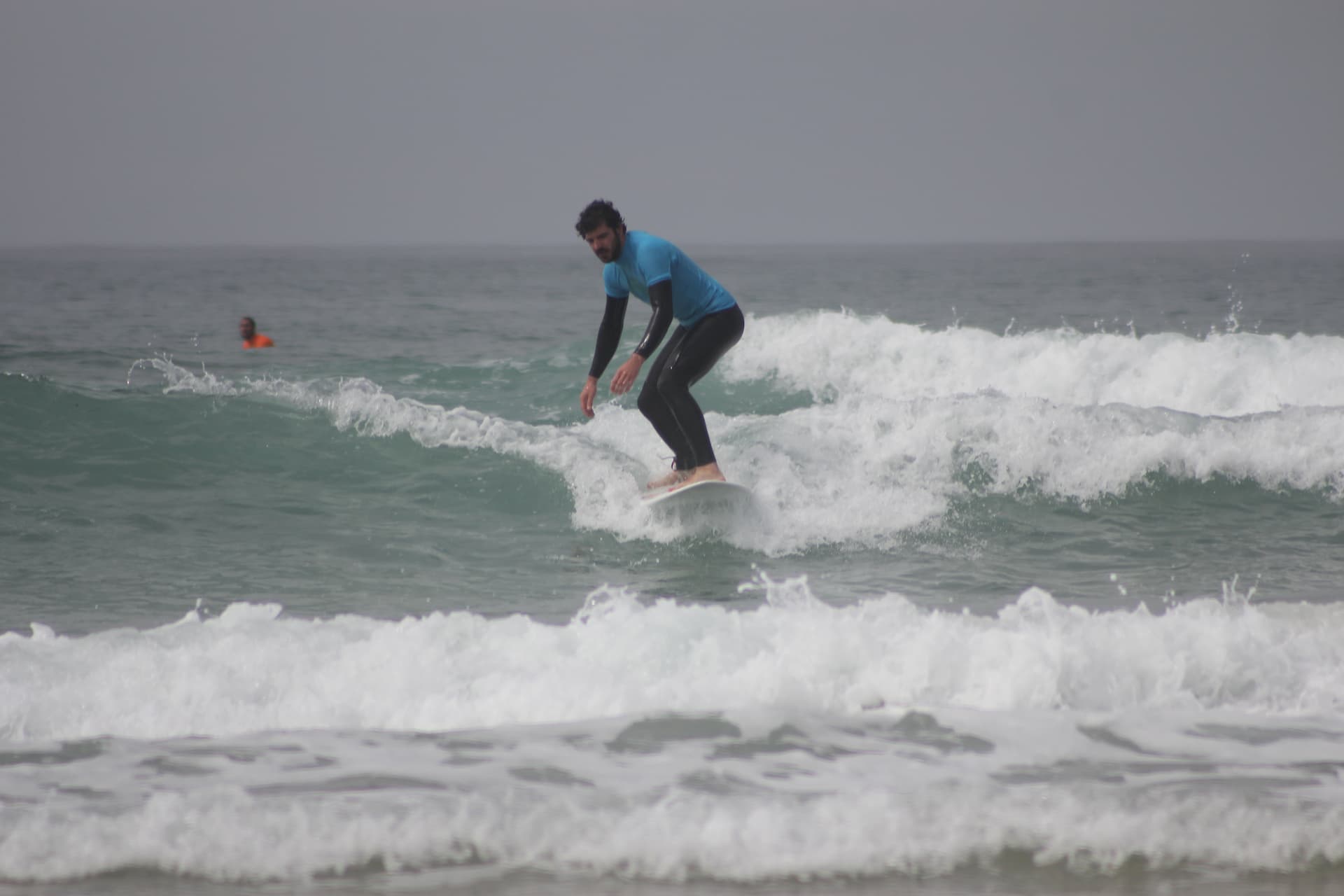
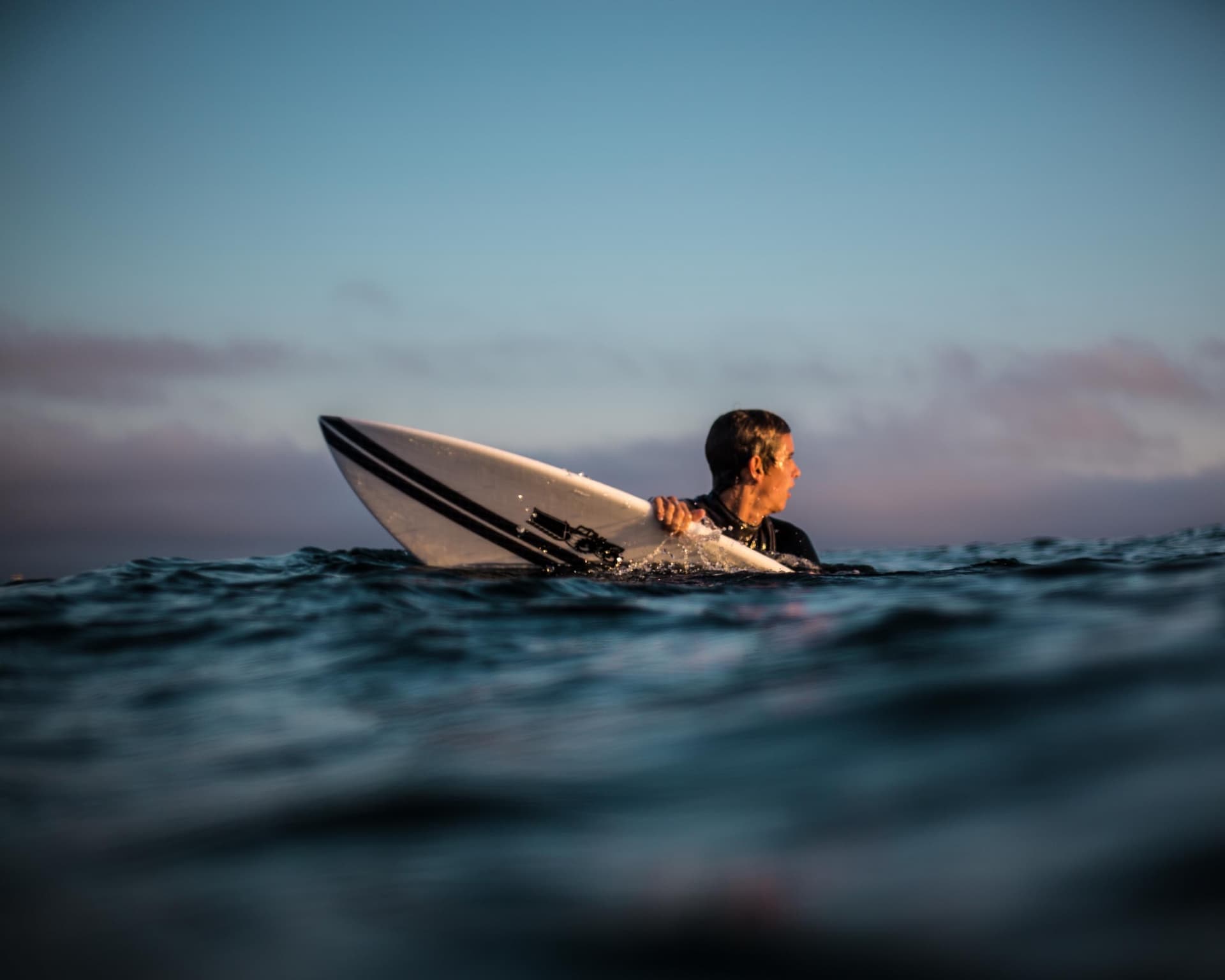
Is surfing exhausting?
Surfing is an exhilarating and challenging sport that requires both physical and mental stamina. While it can be tiring, the exhaustion is a result of the intense workout you get from paddling out, riding waves, and navigating the ocean currents. However, the feeling of catching a wave and riding it to shore makes all the effort worth it. With proper training and preparation, surfing can be a fun and energising activity that leaves you feeling refreshed and rejuvenated.
It's important to remember that surfing can be physically demanding, especially for beginners who are not yet used to the movements and the strength required. However, with regular practice, your body will adapt and become stronger, making surfing less exhausting over time. Additionally, there are ways to conserve energy while surfing, such as using the right equipment, taking breaks when needed, and pacing yourself. By doing so, you can extend your time in the water and enjoy the experience without feeling overly fatigued. So, while surfing may be tiring, it's definitely worth trying for the sheer thrill of riding the waves and the sense of accomplishment that comes with it.
Can I start surfing at 26?
Absolutely! You can start surfing at any age and 26 is a great time to start. Don't let the fear of being a beginner hold you back from trying something new and exciting. Surfing is not only a fun way to spend your time, but it's also a great way to stay active and healthy. The feeling of riding a wave is like no other, and it's a fantastic way to connect with nature and the ocean.
It's important to remember that everyone starts as a beginner, even the most skilled surfers had to start somewhere. Surfing is a sport that requires practice and patience, so don't expect to be a pro overnight. But with time and dedication, you'll be able to catch your first wave and progress from there. So why not give it a go? Grab a surfboard, head to the beach, and see where this amazing sport can take you. You never know, surfing might just become your new favourite hobby!
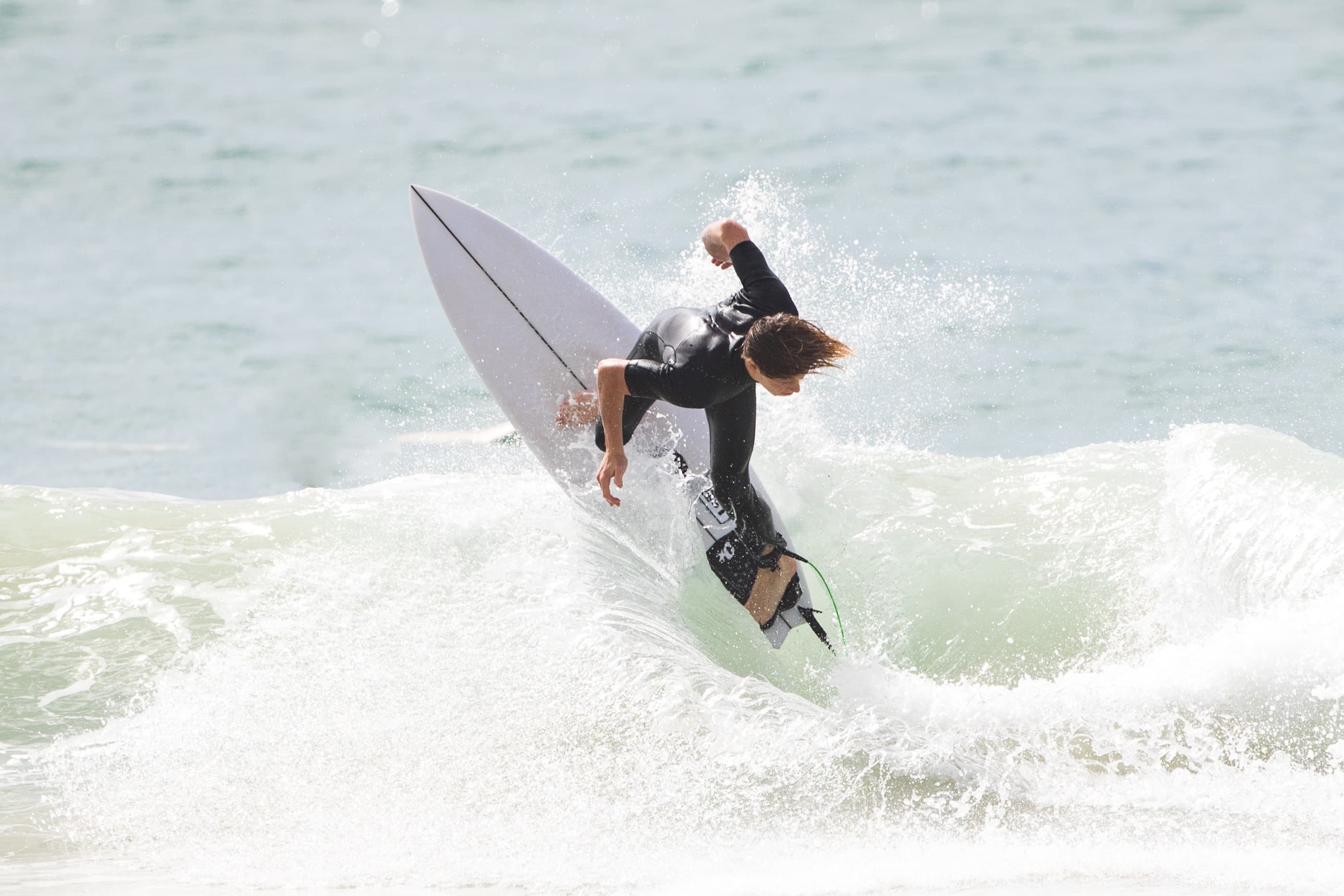
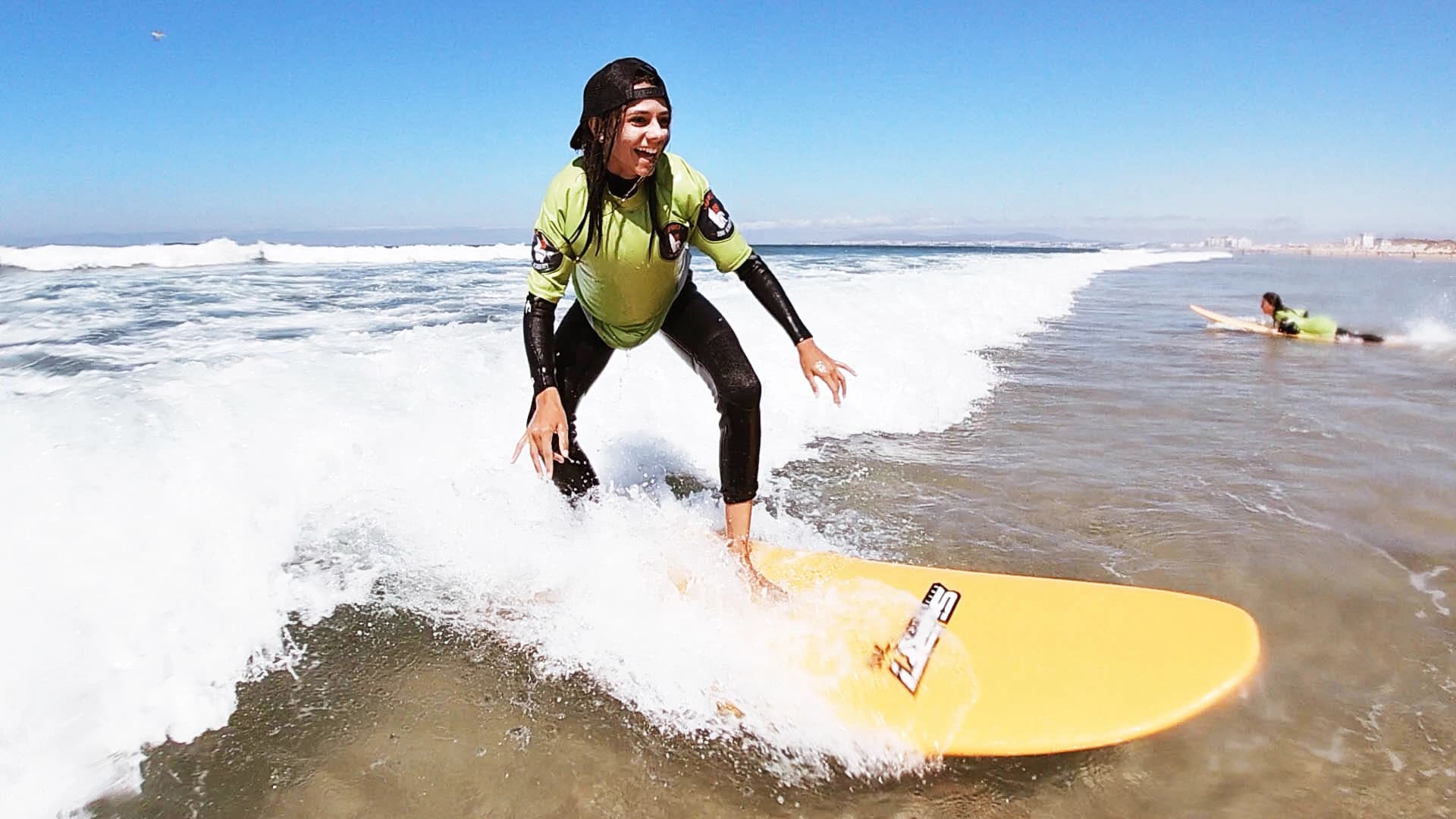
What is the average height of a surfer?
There is no one "average" height for a surfer. In fact, surfing is a sport that welcomes people of all shapes and sizes, and there are successful surfers at every height. Some of the world's best surfers, like Kelly Slater and Carissa Moore, are relatively tall, while others, like Stephanie Gilmore and Gabriel Medina, are on the shorter side. What's important in surfing is not your height, but your skill and technique.
In fact, being a shorter or taller surfer can have its advantages. Taller surfers can have a longer reach, which can help them catch waves further out and perform certain maneuvers with ease. On the other hand, shorter surfers may have a lower centre of gravity, which can give them an advantage in balance and manoeuvring the board in the water. So, don't let your height discourage you from trying surfing or pursuing it as a hobby. Whatever your height, if you're willing to put in the effort and practice, you can become a skilled and successful surfer.
Can you learn to surf over 50?
Absolutely! Learning to surf is an exciting and rewarding experience that can be enjoyed at any age. While it may seem daunting to take up a new sport later in life, there are many reasons why it's never too late to learn to surf. First and foremost, surfing is a fantastic way to stay active and fit, which is essential for maintaining a healthy lifestyle as we age. Additionally, surfing can be a great way to spend time outdoors and connect with nature, which has been shown to have numerous health benefits.
Learning to surf can also be an incredibly fulfilling experience that can help boost your confidence and sense of accomplishment. While it may take some time and effort to get the hang of it, the feeling of catching your first wave is something that you'll never forget. Plus, surfing can be a fun social activity that allows you to meet new people and build meaningful connections with others who share your passion for the sport. So, if you're over 50 and considering taking up surfing, don't hesitate! With a positive attitude, a willingness to learn, and some good instruction, you can be riding the waves in no time.
